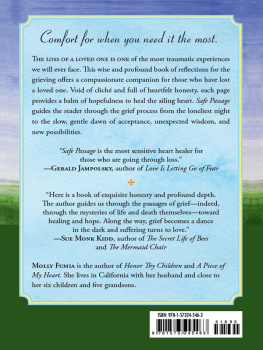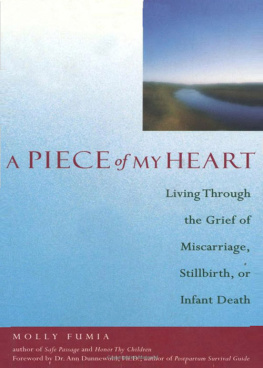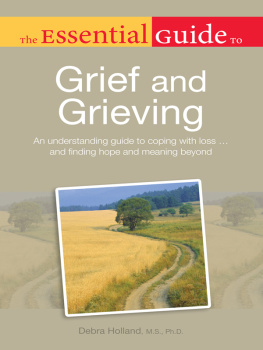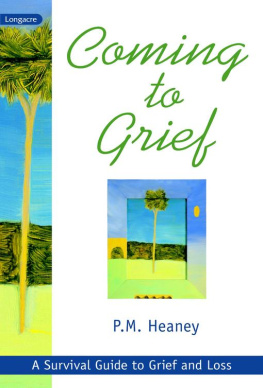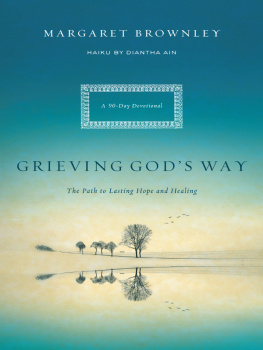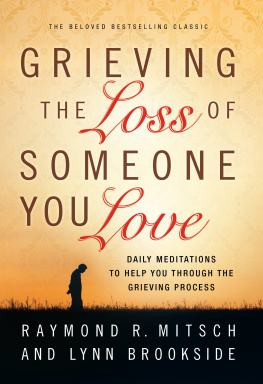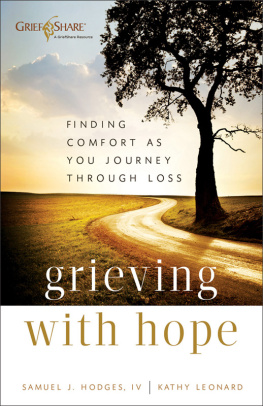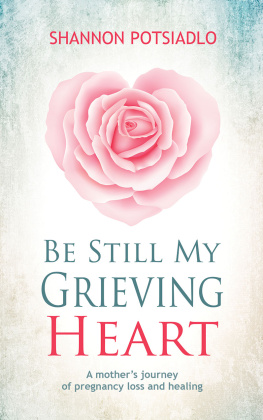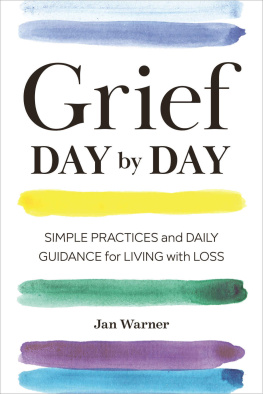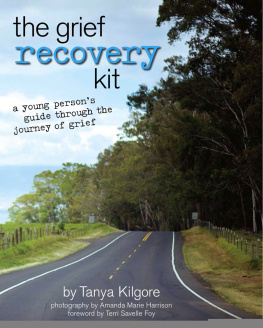Acknowledgments
I would like to reconfirm and multiply my love and gratitude to the marvelous support group who, over the years, have made the heart of this book possible. Luckily for me, I am in debt to the following people:
Chuck, Melissa, Mark, Nicholas, Gino, Kristen and Joel Fumia, John and Rena Fumia, Bob Brown, Tom Gumbleton, Debbie Fumia, Nancy Ottoboni, Debbie Biondolillo, Chris Hayes, Kathy Gibson, Cathy Wilcox, Terry Johnston, Ph.D., and Elie Wiesel.
To the late Helen Menden and Joe Biondolillo.
To the first brave hearts: Ann Morrissey and Carol Matusich.
And to the second wave of seers, supporters, and grief companions in my life: Sue Eschelbach, Al and Kathy Zapala, Marilyn and Bob Dumesnil, Bill Muller, S.J., Kathy Imwalle, Sharon Wulf, Nancy Holleran, Jennifer Pearson, Daisy Anzoategui, Barbara Ferst, David Ferst, Suzanne Sattler, IHM, and Jean Stokan.
To these extraordinary womenJudy Peckler, Jane Nakatani, Maria Dammer, Sydney Brown, and Glenda MartinI offer nothing less than wonder and amazement. You are the presence, and the proof, of energy capable of conquering grief. Because you are in my life, I dance a daily jig of delight.
And again, to Mary Jane Ryan, the Wise and Loving, all the thanks I can give.
About the Author

Molly Fumia is the author of Safe Passage, Honor Thy Children, and A Piece of My Heart. She lives in northern California with her husband, and close to her six children and five grandsons. Currently, she is writing her first novel.
Beginnings
Consolation springs from sources
deeper far than deepest suffering.
WILLIAM WORDSWORTH
W alking by the sea, I pick up a starfish that is missing an arm. Losing you has been like that, like a limb actually was torn from my body.
As I gently place it back on the sand, I notice that despite the cruel amputation, a marvelous and beautiful creature has survived. And I remember the miracle of the starfish: the arm will grow back, and it will be whole once again.
T here is an instant between awakening and awareness that I float free of remembrance and reality. For only a moment, things are as they were, and this present pain is not at all. I wish not to move on, but to stay safe in that nothingness, to linger, while I can, just ahead of the dreaded truth.
T he center of my grief is like the dead of winter; the white, frozen stillness surrounds me, a deep, interior chill pervades my body. I am terrified that I will always be this cold.
The slight warming wind that will unsettle the ice is not yet perceptible.
I cry and I cry. I respond to every turn of the day with tears, wondering, now and then, how my incessant weeping appears to those around me. It is coming clear to me. Only tears encourage time to pass. Only tears anoint the endless waiting with tender hope that the days to follow might flow more kindly into understanding.
I am so tired. These callous circumstances have stolen away my energy and my motivation. I am left without the power to continue moving; I can hardly imagine the strength even to stand in place.
I want only to give in to my exhaustion, to sleep and sleep until I can wake up to another, less evil reality.
W hat is it like, this place set aside for grieving? It is wherever we are surrounded by the darkness. And where does the healing begin? Huddled in the dark, listening to long-lost voices, not yet searching for the light.
I wake, haunted by a searing sense of the unfinished. By how things might have been. If only I possessed the magic power to give us a second chance. But I am no wizard; the trick I must perform is to accept what is.
T his pain is a companion, but can it ever become something more? The answer is in my ability to befriend my own experience.
I n dealing with fear, the way out is in.
SHELDON KOPP
G rief is not passive, but active. Grief reveals and challenges while it deals with the horrible facts. It lends itself to truth in a way that no other emotion can. It identifies all of the participants in tragedy and allows them their role in the universe.
And in all of this, I now somehow take my place.
W e struggled so hard to be together, and now we are apart once more. I can't imagine starting over with someone else. You were my last destination.
A kaleidoscope of feelings has ensnared me. Denial, anger, guilt, despair, acceptance. One does not end for another to begin, rather the emotions tumble about and crash together just beyond control, and without regard for my wounded, weeping heart.
I am waiting to become disentangled. I want to separate one color from another, so that I might see more clearly what assaults me. I want to address the fullness of my tears one feeling at a time.
T hey tell me to take it easy, give yourself time, just sit for a while. But that doesn't work. They tell me to keep busy, go on a trip, take up something new. That doesn't work either. To do nothing, to do everything. Nothing works. Nothing works.
M ourning is like re-entering the womb. We find a dark place where we can weep unheeded and become whole in our own time. Emptiness turns to hope in this safe refuge, this comforting cavern echoing endings and beginnings, slowly transformed again into a passageway to our other, older life.
I was shocked that I did not die from grief. And I know now that I will not die from it, because I choose not to. I may run, or shake wildly, or lie paralyzed on the ground for a while, but I will not ultimately succumb.
I find myself going over and over the details of your death with everyone I know. To speak and speak again of this event proclaims its awful truth to me, perhaps not yet quite convinced, perhaps not sure of my place in its unfolding.
And so I allow this repetition, knowing that words are possibilitiesof explanation, of comprehension, of absolution. My testimony, once familiar, will reassure my trembling, still questioning heart.
U nderstanding does not cure evil, but it is a definite help, inasmuch as one can cope with a comprehensible darkness.
CARL JUNG
I f only I could have spoken to him before he chose to end a life. It would only have taken a few minutes to tell him about us, to describe the ways we all love each other, to paint a picture of our happiness and our innocence.
I could have changed his mind. He would have understood that she deserved to live. I would have looked into his eyes and made him see himself in mine, and he would have decided differently.
E ven though I am surrounded by friends, I think about images of the past that are still present for me.
Which of these ghosts, if any, deserves my attention? It seems unkind to banish them all from among the living, from a place that was once theirs.
But I want to laugh again, to participate once more in lively conversation. While I welcome those memories that have been invited, I will eventually close the door on those which haunt me.
I haven't eaten in days. Eventually, I'll have to eat. When I feel like eating again, I hope I won't feel guilty, but will respect my sense that it is all right for me to live, even though you have died.
R unning from my grief, I am not silent or still long enough to let it in. But the fullness of existence is facing both life and death, and taking the risks involved in that confrontation.
To have loved you is to have opened up to a willingness to feel your loss. This is the time of reckoning. I must stop to feel my sorrow.
Next page
